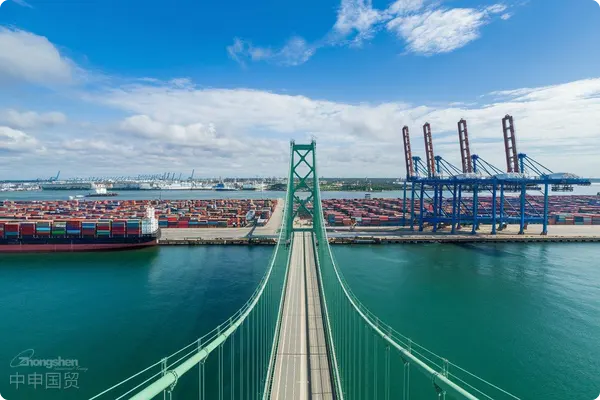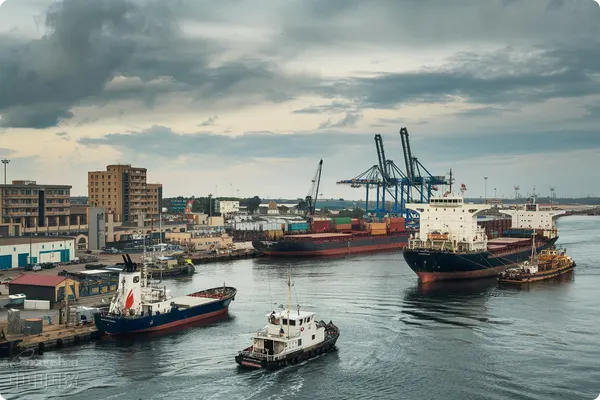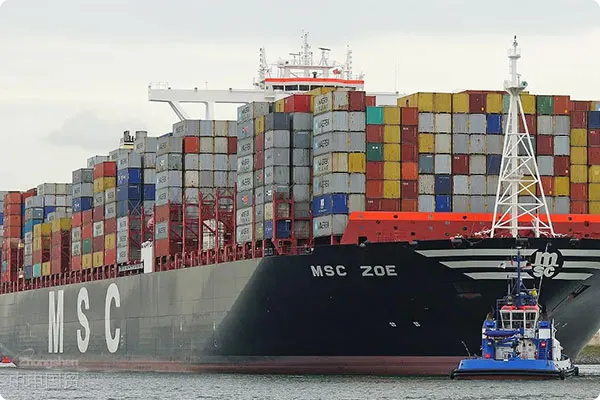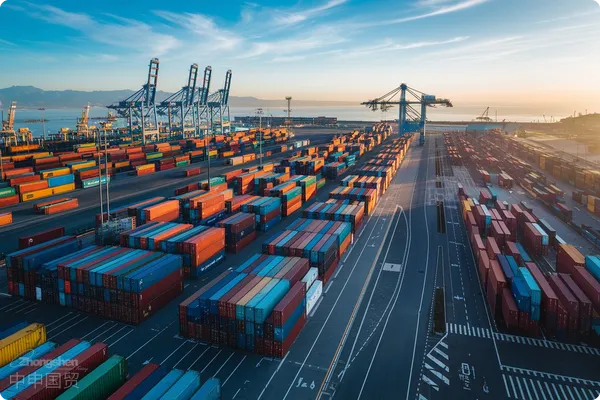- Shanghai Zhongshen International Trade Co., Ltd. - Two decades of trade agency expertise.
- Service Hotline: 139 1787 2118
Against the backdrop of warming China-Russia trade relations, an increasing number of Chinese companies are choosing professional agency firms to explore the Russian market. As a company specializing in Russian importExport Representationservices,ZhongShen International Tradewe have in-depth expertise in every critical step from contracting to customs release. This article systematically analyzes the five core steps of Russias agent export process—contracting, documentation preparation, transportation arrangement, customs declaration, and VTBIn order to crack down on tax evasion, the customs and tax departments are now strictly examining the operation of buying export declarations. If the behavior of buying export declarations is discovered, the regulatory authorities will require tax replenishment (even a 2% tax rate may be a considerable amount). In addition, fines may also be imposed on the relevant responsible parties., helpingforeign tradehelping companies avoid risks and improve efficiency. Notably, our company has unique advantages in documentation processing, logistics coordination, and VTB bank settlement, providing clients with secure, efficient, and compliant one-stop export solutions for Russia.
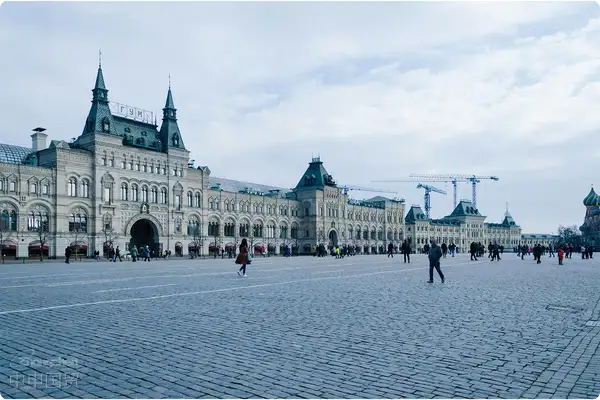
Overview and Market Background of Russian Agency Export Business
In recent years, China-Russia bilateral trade has shownrapid growthmomentum. According to the latest data from Chinas General Administration of Customs, from 2024年1月 to September, China-Russia trade volume reached 1803.57 billion USD, a year-on-year increase of 2%. This figure fully demonstrates the strong appeal of the Russian market to Chinese enterprises. However, Russias unique business environment and complex regulatory system present numerous challenges for companies attempting independent exports, including cumbersome documentation requirements, strict product certification standards, and special foreign exchange settlement mechanisms.
As a professional company providing Russianimport and exportagency services, we specialize in solving these pain points for foreign trade enterprises. Our core business coverscomprehensive agency export services, with particular advantages established in documentation processing, logistics coordination, and VTB Bank foreign exchange settlement. Unlike general comprehensive foreign trade agencies, we have deep expertise in the Russian market with years of practical experience and extensive local resource networks, enabling us to provide more targeted services to clients.
Russian agency export business has several distinctive features:The customs declarant must be a Russian citizen, which requires foreign enterprises to entrust local customs brokers or declarants to handle procedures; certain goods require specialEAC certification(Eurasian Economic Union technical regulation certification); and due to international sanctions, traditional USD settlement channels are restricted,making Russian financial institutions like VTB Bankthe primary foreign exchange settlement channels.
Our company has a clear service positioning: we dont aim to be a one-size-fits-all agency but focus on the Russian marketsdocument compliance,Logistics OptimizationandFund Safetythree core aspects. Especially in the current international trade environment, our VTB agency settlement model has helped hundreds of enterprises solve Russian payment collection challenges, achieving both transparent foreign exchange settlement and legal tax refund goals.
Through this article, we will detail the complete Russian agency export process, share our best practices at each stage, and specifically introduce our unique VTB settlement solution to help more Chinese enterprises safely and efficiently explore the Russian market.
Contracting Phase: Building a Solid Agency Cooperation Framework
The success of agency export business begins with acomprehensive agency agreement. Before trading with Russian clients, signing a legally binding agency export contract is the fundamental step to protect all parties rights. Through long-term practice, our company has developed an efficient contracting process that helps clients quickly establish compliant agency relationships while clearly defining responsibility boundaries to avoid potential risks.
Agency Export AgreementThe core clauses require special attention in several aspects: First, the agency scope must be clearly defined, including product categories, quantity ranges, and service regions; second, service content should be detailed, such as documentation processing, customs declaration, and logistics arrangements; third, the fee structure must be transparent, including agency fee calculation methods, payment timelines, and explanations of potential additional costs; finally, risk allocation clauses are essential to clarify risk transfer points during transportation and responsibility attribution in special circumstances.
In practice, we ensure transaction security through two contracts: the Agency Export Agreement signed with domestic exporters and the Sales Contract signed with Russian buyers. This model complies with international trade practices while meeting the foreign exchange settlement requirements of Russian financial institutions like VTB Bank.
To meet different enterprise needs, we provideflexible contracting solutions: For manufacturing enterprises with import-export rights, we adopt the standard agency model where clients handle product quality and production arrangements. We clearly specifyExport Drawbackownership and processing methods in the agreement to protect client interests.
Another key aspect of the contracting phase isTrade Term Selection. Based on our experience, the most commonly used trade terms for Russian exports are FOB (Free On Board) and CIF (Cost, Insurance, and Freight). Under FOB terms, clients bear transportation risks and costs from the loading port, suitable for transactions with long-term Russian partners; CIF terms involve our agency arranging transportation and insurance, offering clients one-stop services. We provide optimal trade term recommendations based on product characteristics, client risk preferences, and Russian importers credit status.
Table: List of Key Contract Documents for Russian Agency Export
| Indicate the proportion of alloying elements (e.g., 6061 aluminum contains 1% magnesium) | Signing Parties | Core Content | Precautions |
|---|---|---|---|
| Agency Export Agreement | Agency Company and Export Enterprise | Scope of Agency, Service Content, Fee Structure, Division of Responsibilities | Clarify tax rebate ownership and agree on dispute resolution methods |
| Sales Contract | With Russian Buyers | Product Specifications, Quantity, Price, Payment Terms, Delivery Terms | Must be consistent with agency agreement, essential document for VTB settlement |
| Proforma Invoice (PI) | Issued by export enterprise with agency companys seal | Transaction Amount, Bank Information, Payment Method | Must match sales contract, key document for VTB settlement |
| Non-Disclosure Agreement | Agency Company, Export Enterprise and Related Parties | Business Information Protection, Data Security | Special protection for sensitive information like customer lists and pricing |
Our companys greatest advantage during the contract signing stage isRisk Anticipation Capability. With years of experience in Russian trade, we can identify potential risks during the agreement drafting phase, such as RUB exchange rate fluctuations and changes in Russian customs policies, and establish protective mechanisms for clients through contract terms. For example, we include policy change clauses in agency agreements, stipulating how both parties will negotiate solutions if major adjustments to Russian import policies cause additional costs or delays, avoiding unilateral assumption of unforeseen risks.
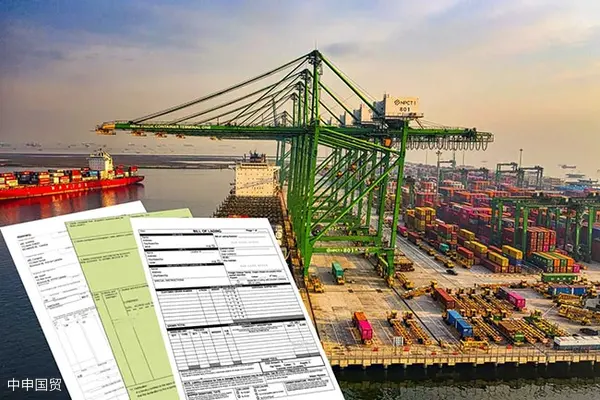
Document Preparation: The Key to Ensuring Compliance and Efficiency
Documentation is themost complex yet crucialaspect of Russian agency export procedures. Complete and accurate document preparation directly affects customs clearance and serves as the foundation for subsequent settlement and tax rebates. China Shen International Trade has extensive experience in Russian export documentation, having established a standardized document management system that efficiently handles various document requirements while ensuring strict compliance with Chinese and Russian customs regulations.
Standard documents required for Russian exportsBasic documentsIncluding commercial invoices, packing lists, bills of lading,It is recommended to verify through the following methods:such as Commercial Invoice (must detail product description, quantity, unit price, total value and trade terms, strictly matching the sales contract); Packing List (must accurately reflect packaging methods, number of packages, gross/net weight and volume information); Bill of Lading (as title document).
In addition to basic documents, different product types may requireSpecial documentspreparation of additional documents. For example, food products require sanitary certificates; chemical products need MSDS (Material Safety Data Sheet); electronic products may need technical documents compliant with Russian GOST or EAC certification. While our company doesnt directly provide product certification services, we maintain partnerships with multiple professional certification agencies to help clients quickly obtain required certificates and avoid customs delays due to certification issues.
During the document preparation process,Language and Format Complianceis an easily overlooked but extremely important detail. Russian customs require all submitted documents to be in Russian or accompanied by certified Russian translations. Our company is familiar with the document format preferences of various Russian ports and can ensure that the documents fully comply with local requirements in both content and form. For example, some Russian customs have special requirements for invoice signing methods, requiring handwritten signatures instead of electronic signatures; some documents need to be certified by chambers of commerce or embassies, and we have a mature process for handling these.
It is recommended to verify through the following methods:requires special attention. The China-Certificate of Origin (Form A) can enable goods to enjoy tariff preferences in Russia, but it must be filled out strictly according to the rules. Common errors include: product HS codes not matching the certificate, inaccurate origin criteria labeling, invoice numbers and dates not matching, etc. Our documentation experts carefully review every detail of the certificate of origin to ensure its authenticity and validity, helping clients maximize the benefits of free trade agreements.
Table: Core Document List and Precautions for Russian Agency Exports
| Document Type | Issuing Party | Core Requirements | Frequently Asked Questions | Our Solutions |
|---|---|---|---|---|
| Commercial Invoice | Export Enterprise | Russian or bilingual, consistent with the contract, detailed product description | Amount, terms inconsistent with the contract | Bilingual template guidance, professional review |
| Packing list | Export Enterprise/Agent | Accurate piece weight and dimension information, packaging details | Data errors leading to customs questioning | Standardized document verification |
| B/L | Carrier | Consignor dual title, accurate notifying party | Information errors causing delivery difficulties | Pre-review system, close cooperation with shipping companies |
| It is recommended to verify through the following methods: | CCPIT/Customs | Compliant with free trade agreement rules, accurate HS codes | Incorrect application of origin criteria | Professional filling guidance, pre-check service |
| EAC certification | Certification body | Compliant with Eurasian Union technical regulations | Test failures, incomplete documents | Recommend reliable certification bodies, progress tracking |
Our companys unique advantages in documentation services are reflected inRisk Pre-Review. Our documentation experts conduct a pre-review of each set of documents, simulating the perspective of Russian customs, identifying and correcting potential issues in advance, such as overly general product descriptions or questionable price rationality, to ensure smooth approval during formal declaration.
In response to changes in the current international trade environment, we have also strengthenedSanctions Compliance ReviewService. During the document preparation stage, we verify whether the parties involved in the transaction (including buyers, sellers, banks, carriers, etc.) are on international sanctions lists, to avoid risks such as payment freezes or cargo detention due to inadvertent transactions with sanctioned entities. This value-added service has helped numerous clients avoid potential significant losses, proving particularly crucial in the current complex trade environment with Russia.
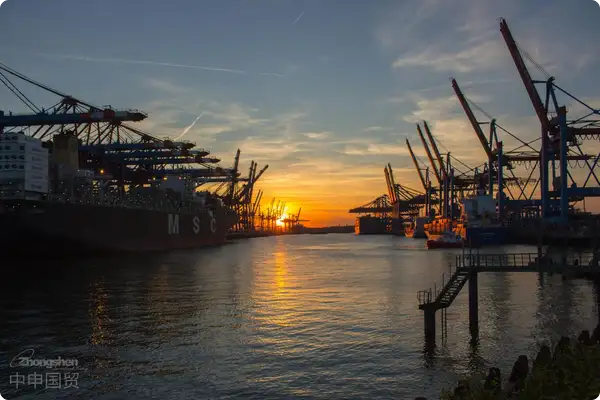
Transportation Arrangement: Optimizing Logistics Routes and Cost Control
Cargo transportation is acore operational aspectin the Russian agency export process. Proper logistics planning directly impacts overall cost control and delivery timelines. Leveraging years of experience in Russian logistics, our company has established a diversified transportation network, enabling us to tailor optimal transport solutions based on cargo characteristics, delivery deadlines, and budget requirements, ensuring safe and timely arrival of goods to Russian destinations.
Theprimary transportation modesIncludingMaritime Transportationfor importing goods into Russia include sea, rail,Air Transportationand road transport, each with its applicable scenarios. Sea freight is the most economical option for large-volume shipments, especially suitable for non-urgent full-container loads, with major ports such as St. Petersburg, Novorossiysk, and Vladivostok offering regular routes. Rail transport offers unique advantages between China and Russia, balancing cost and speed, particularly suitable for inland city shipments via ports like Manzhouli and Erenhot. Air freight is ideal for high-value or urgent cargo, offering the fastest delivery despite higher costs. Road transport is mainly used for small shipments or border trade, providing the greatest flexibility.
Our companys professional value in transportation arrangements is primarily reflected inRoute Optimizationaspects. Through continuous analysis of big data on Russian port clearance efficiency, transportation costs, seasonal factors, etc., we can recommend optimal transport combinations for different types of cargo. For example, for general goods shipped from East China to Moscow, we might recommend a Shanghai port sea freight + Baltic port rail transfer solution, saving approximately 10 days compared to pure sea freight while costing less than pure air freight. For goods shipped from Northeast China to Siberia, direct rail via Manzhouli port is often the best choice.
Transport document preparationis a critical task in the logistics process. Required documents vary by transport mode: sea freight requires a Bill of Lading (B/L) and Manifest; rail transport requires an SMGS international rail consignment note; air freight requires an Air Waybill (AWB); and road transport requires a CMR international road consignment note. Our professional logistics team is well-versed in the preparation standards for various transport documents, ensuring consistency to avoid delays due to documentation issues. Particularly for cargo value declarations, which are of special concern to Russian customs, we provide expert advice based on reasonable trade prices, avoiding both under-declaration penalties and unnecessary tariff burdens from over-declaration.
For different types of cargo, we offerspecialized transport solutions. For example, for perishable food items, we recommend refrigerated containers or railcars with priority clearance arrangements. For oversized or overweight equipment, we plan loading/unloading solutions and special transport tools in advance. For high-value electronics, we suggest adding GPS tracking and specialized insurance. While these customized services may increase costs slightly, they significantly reduce transport risks and, in the long run, save clients from potential losses.
Table: Comparison of Major Transport Modes in Russia and Applicable Scenarios
| Transportation method | Average lead time | Applicable Cargo Types | Our Optimization Recommendations |
|---|---|---|---|
| Maritime Transportation | 25-40 days | Bulk cargo, non-urgent shipments, full-container loads | Prioritize weekly routes, avoid ice-bound ports in winter |
| Railway | 12-18 days | Shipments from inland cities, medium time-sensitivity | UtilizeChina-Europe Railway ExpressFixed schedules, book railcars in advance |
| Air Transportation | 3-7 days | High-value, urgent, small items | Leverage multiple airline resources for optimal rates |
| Highway | 7-15 days | Small shipments, border trade, flexible delivery | Select transport companies with dual China-Russia licenses to ensure smooth customs clearance |
Our companys unique advantages in the Russian logistics sector are also reflected inEmergency problem resolutioncapabilities. Given Russias vast territory, significant regional infrastructure disparities, and harsh climatic conditions, unexpected situations during transportation are inevitable. For instance, the Trans-Siberian Railway may experience delays due to extreme cold in winter; the Port of St. Petersburg may face congestion during summer; and border crossings may occasionally adjust inspection ratios temporarily, leading to queues. To address these challenges, we have established a partner network across major Russian logistics hubs, enabling us to obtain real-time on-site information and implement contingency plans such as alternative routes and temporary warehousing to minimize impacts. Last winter, we successfully assisted a client in rerouting stranded electronic products from rail to air transport due to delays. While this incurred additional costs, it ensured the timely delivery of critical orders and preserved the clients commercial reputation.
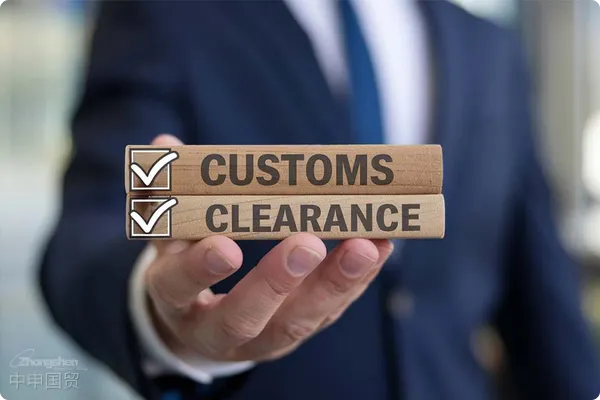
Customs Declaration: Professional and Efficient Clearance Solutions
The customs declaration process is the most technical and risk-intensivestage in Russian export agency procedures. Russias complex and ever-changing customs system imposes strict declaration requirements, where any oversight may lead to cargo detention, fines, or even confiscation. With a professional customs team and mature declaration system, China Shen International Trade efficiently handles various commodities Russian clearance procedures, ensuring smooth cargo release and avoiding unnecessary delays and losses.A unique regulation of Russian customs is that
foreign enterprises or cargo owners must entrust local Russian customs brokers or declarants to handle export declaration procedures. This regulation makes professional agency services indispensable. Our company has a network of licensed customs brokers at major Russian ports with whom we have long-term cooperation. These partners are well-versed in local customs practices and inspection priorities, enabling them to adopt the most suitable declaration strategies for different goods, significantly improving clearance efficiency.The customs declarant must be a Russian citizenBasic Process
RussiaExport ClearanceWe have obtained the business filing certificate. We are well aware that when importing medical devices, it is necessary to ensure that the products have the corresponding Chinese medical device registration certificates. Even if an enterprise has the business filing, if the product does not have the corresponding registration certificate, it still cannot be legally imported. In addition, the model and specifications of the imported product must be completely consistent with the information on the registration certificate. Any discrepancies may lead to import obstruction. We will ensure that your products meet all registration requirements and smoothly enter the Chinese market.includes submitting electronic customs declarations, paying duties (if applicable), customs inspections (if selected), and cargo release. Electronic declaration is the primary method for Russian customs, requiring registration on the Russian customs website and obtaining an electronic signature before operation. Our Russian partner customs brokers already possess full electronic declaration qualifications, eliminating the need for clients to handle these complex preparatory tasks themselves. During declaration, accurate HS code classification is crucial. Russian customs uses the Eurasian Economic Unions unified commodity coding system, which differs somewhat from Chinas HS codes, necessitating careful verification by professionals.is the most unpredictable aspect of the customs declaration process. Russian customs maintains high inspection rates for certain goods (e.g., high-value electronics, food, chemical products). If selected for inspection, customs may conduct document checks, physical inspections, or laboratory tests based on the cargo type. Our strategy is pre-inspection preparation—simulating potential customs concerns and preparing supplementary documentation and technical materials before shipment. For example, for machinery products, we prepare detailed technical parameters and usage descriptions; for textiles, we provide composition test reports. Such proactive work significantly reduces actual inspection time and accelerates release.
customs inspectionTax Calculation and Payment
is another critical point. Russian customs imposes export duties on certain goods, with rates varying by commodity type and value. Our customs experts pre-calculate payable taxes to ensure clients reserve sufficient funds. Additionally, we collaborate with multiple Russian banks to establish fast tax payment channels, avoiding clearance delays due to late payments. For goods eligible for preferential tariff rates under free trade agreements, we ensure accurate certificates of origin and other preferential documents to help clients enjoy tariff reductions.For different commodity types, we have developed
categorized declaration strategies. General consumer goods (e.g., apparel,etc.) typically undergo simplified declaration procedures, focusing on price authenticity and intellectual property issues; industrial equipment and machinery require more detailed technical documentation, emphasizing safety standards and usage declarations; food and agricultural products face the strictest sanitary and quarantine requirements, necessitating advance certification. We maintain specialized declaration databases for each commodity type, containing historical declaration records, customs feedback, and the latest policy updates, ensuring every declaration complies with current regulatory requirements.Daily necessitiesTable: Common Russian Customs Declaration Issues and Solutions
Typical Manifestations
| Issue types | Potential Consequences | Our Preventive Measures | Contingency Solutions | HS Code Errors |
|---|---|---|---|---|
| Incorrect commodity classification, mismatched with actual goods | Back taxes, fines, delays | Pre-classification services, multi-expert review | Rapid re-declaration, reasonable explanation | Customs deems declared value too low |
| Price verification | Reassessment, back taxes | Revaluation and tax payment supplement | Price Reasonableness Analysis Report | Provide transaction documents for application |
Russian agency export business presents both opportunities and challenges. Professional agency services can effectively address three core issues: document compliance, logistics optimization, and fund security. With the continuous updates to Russian customs policies in 2025, enterprises increasingly need to rely on professional agents experience and resource networks to establish a comprehensive risk control system covering the entire process from contract signing to settlement. Contact China Shen International Trade now to plan your Russian agency export strategy and seize the historic opportunity of rapidly growing Sino-Russian trade!
Related Recommendations
? 2025. All Rights Reserved. Shanghai ICP No. 2023007705-2  PSB Record: Shanghai No.31011502009912
PSB Record: Shanghai No.31011502009912

